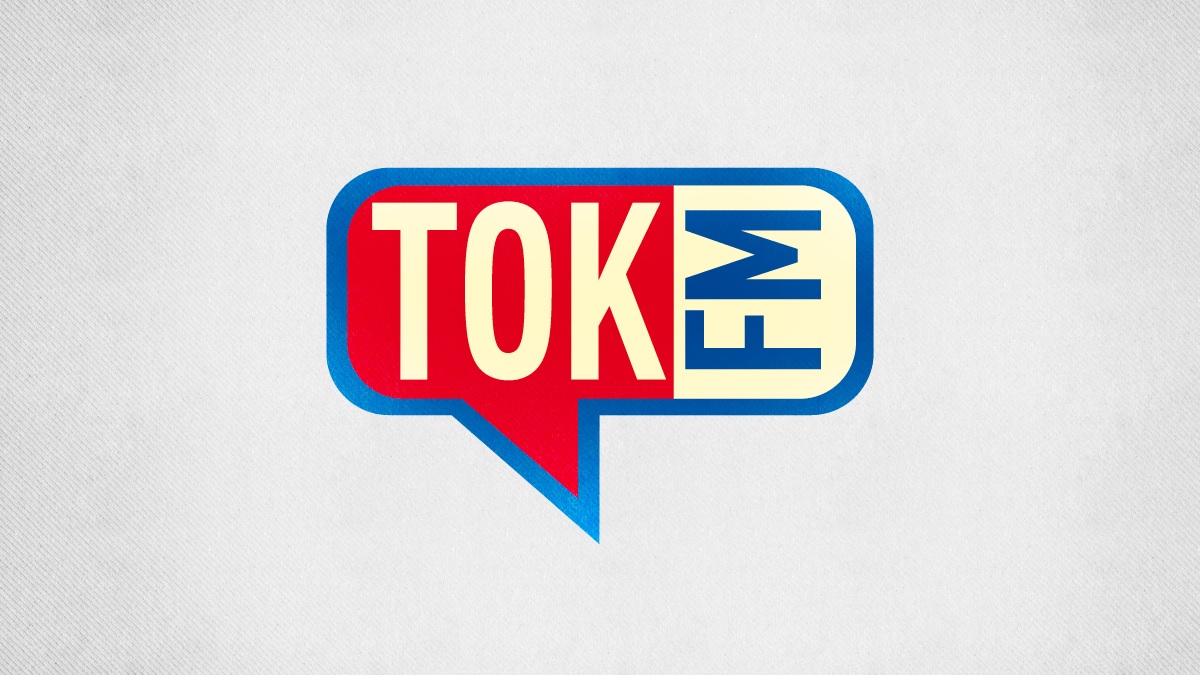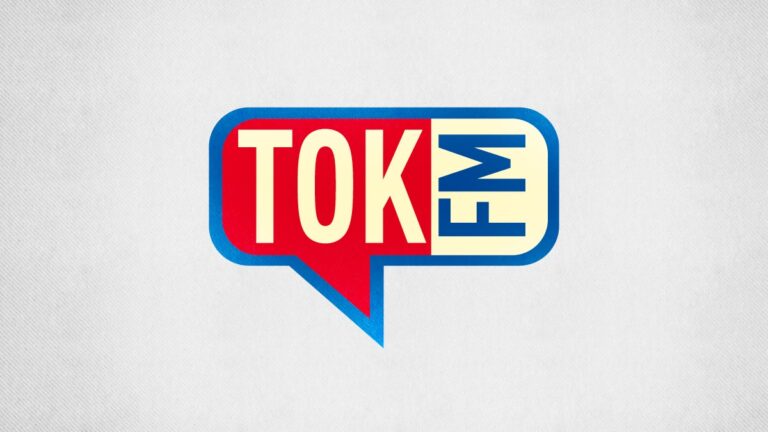The International Press Institute (IPI) today raises alarm over the controversial fine imposed on the independent radio TOK FM by the chair of Poland’s broadcast media regulator and warns of increasing regulatory pressure on the station ahead of a looming licencing decision.
On 28 April 2023, it was announced that the chairperson of Poland’s National Broadcasting Council (KRRiT), Maciej Świrski, had levied a fine of PLN 80,000 (€17,680) on TOK FM for allegedly violating broadcast law and “inciting hatred” during a morning radio interview.
The financial penalty stemmed from an interview broadcasted in June 2022 in which the host Piotr Maślak spoke with a guest about a history textbook introduced into Polish schools. The book had been commissioned by the Ministry of Education and written by a professor who used to be a politician for the governing Law and Justice (PiS) party.
Speaking critically about the textbook, Maślak stated that in his opinion some elements and language could be compared to Nazi propaganda within the Hitler Youth. His statement was followed by the presentation of specific quotes from the book which he described as problematic.
The fine by KRRiT came more than 10 months after the show was broadcasted. In his justification, the chairman claimed the language used on TOK FM had violated Article 18(1) of the Polish Broadcasting Act by “promoting illegal activities, views and attitudes contrary to morality and social good, and containing content inciting hatred and discriminatory content.”
The fine comes as TOK FM, which is owned by Polish media house Agora and is the fourth-most-popular radio station in Poland, awaits a decision on the renewal of its broadcast licence from KRRiT. The current ten-year licence is due to expire in November 2023. The radio station and Agora stood by the journalist and described the fine as “absurd”.
Deepening concern
“This fine against TOK FM is another example in the growing list of problematic regulatory decisions taken by the head of Poland’s National Broadcasting Council in response to legitimate journalistic content on issues sensitive for the government,” IPI Deputy Director Scott Griffen said. “The opinion expressed by the journalist during the show clearly does not meet the threshold for the serious violations alleged. On the contrary, IPI is concerned that this decision by the KRRiT chairman represents a disproportionate and discriminatory application of the Broadcast Act which penalizes a media outlet for exerting its right to free opinion on a matter of public interest.
“IPI and our global network call for this fine to be rescinded immediately. A decision regarding TOK FM’s pending licence renewal should be made by KRRiT in a timely and independent manner and based on strict professional criteria. We further call on the KRRiT chairman to immediately cease imposing fines and ordering investigations against media carrying out legitimate journalistic work.”
“Worryingly, this is a pattern IPI has documented before: one in which the current KRRiT chairman, an ally of PiS, imposes meritless fines on media critical of the government. Many of these investigations appear to have been launched in response to calls for probes by PiS politicians or in retaliation for reporting on sensitive issues.”
Griffen added: “Crucially, this regulatory decision also has implications beyond the financial cost to the media outlet. It comes as TOK FM awaits a decision on the renewal of its ten-year broadcast licence. With its future on the airwaves in the balance, we are concerned that this fine represents a black mark against its name which some members of the KRRiT could now potentially use to argue for the non-renewal of the licence.”
This is not the first time such regulatory pressure has been applied to critical media organizations. The unjustified withholding of the licence renewal of TVN24 until the last moment by government-friendly figures within KRRiT in 2021 was a key example. While that licence was ultimately granted after a months-long standoff, this kind of pressure creates an unstable climate for media to operate in or make sound financial planning.
Regulatory capture
Griffen noted that the non-renewal of broadcast licences for independent media by captured regulatory bodies has been one of the key mechanisms used by illiberal governments to stifle press freedom and erode media pluralism in Europe in recent years. Hungary’s Media Council, which is controlled by appointees of the Fidesz party, is the prime example here, he said.
“IPI is concerned that KRRiT, which has long been dominated by figures appointed by PiS and its allies, has increasingly become an instrument for applying politically-motivated pressure to media critical of the ruling party”, Griffen added. “While KRRiT retains some level of pluralism compared to Hungary’s captured Media Council, we believe the politicization of the body poses a threat to media freedom in Poland.
“Increased scrutiny must be given by EU institutions to KRRiT and the implications of its decisions on free media. Threats to KRRiT’s independence should be clearly highlighted in future EU Rule of Law reports. At the same time, safeguards must be implemented to increase the regulatory authority’s institutional independence moving forward.
“KRRiT, as well as the separate National Media Council, are therefore key examples of the need for a strong European Media Freedom Act (EMFA). The fine imposed by KRRiT on TOK FM is also an example of a case in which scrutiny by the EMFA’s proposed European Board for Media Services would, in our view, be justified.”
In March, IPI warned about signs of increasing pressure on critical and independent media ahead of the general election in Poland in autumn 2023, with regulatory pressure by KRRiT highlighted as a key concern.
While Poland’s media landscape remains vibrant and pluralistic overall, in recent years independent media critical of PiS have faced a multi-pronged campaign of regulatory, financial and legislative pressure aimed at undermining their influence.
This statement by IPI is part of the Media Freedom Rapid Response (MFRR), a Europe-wide mechanism which tracks, monitors and responds to violations of press and media freedom in EU Member States, Candidate Countries, and Ukraine. The project is co-funded by the European Commission.
The statement was originally published ipi.media







